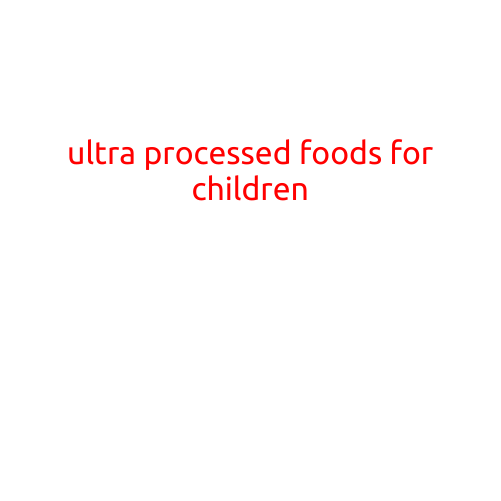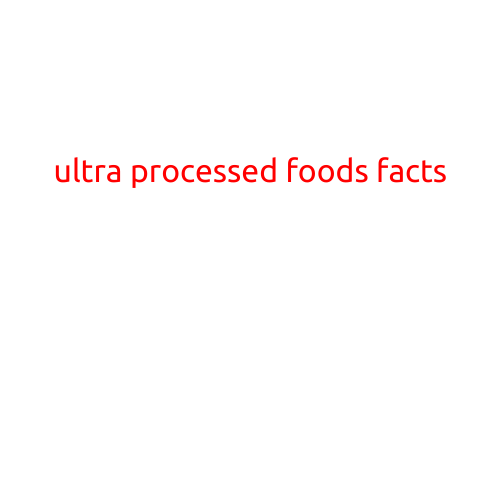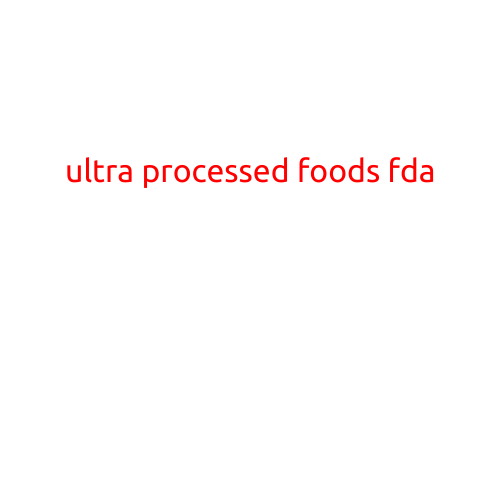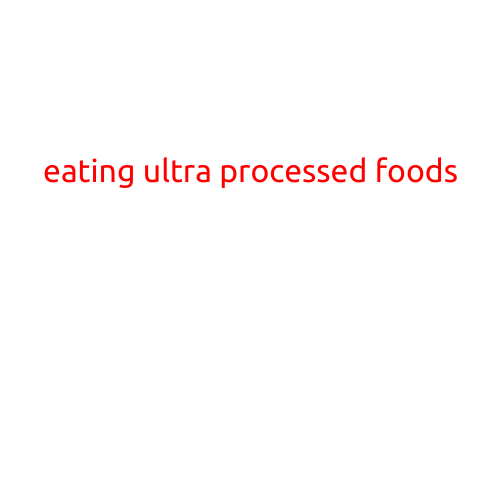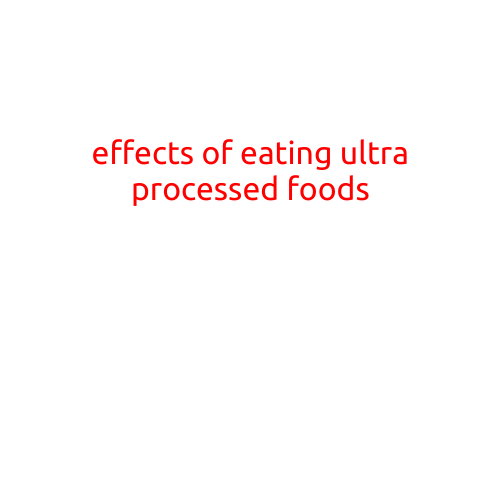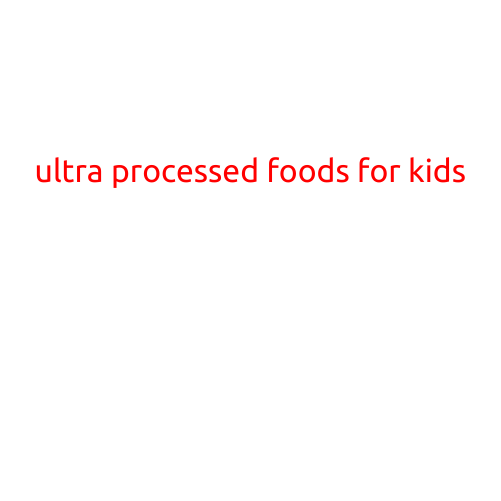
Ultra Processed Foods for Kids: A Growing Concern
As a parent, providing your child with a balanced diet is essential for their growth and development. However, the world of food is rapidly changing, and it’s getting increasingly challenging to make healthy choices. One aspect of this is the rise of ultra-processed foods, which are becoming more prevalent in kids’ diets. In this article, we’ll delve into the world of ultra-processed foods, discuss their impact on children’s health, and provide some tips on how to navigate the complex food landscape.
What are Ultra-Processed Foods?
Ultra-processed foods are products that have been heavily transformed from their natural state through various processing methods. These foods often contain added sugars, salt, and unhealthy fats, making them highly palatable but nutritionally bereft. Examples of ultra-processed foods include:
- Frozen meals and TV dinners
- Baked goods, such as pastries and cakes
- Sugary cereals and snacks
- Processed meats, like hot dogs and sausages
- Ultra-pasteurized milk and juice boxes
- Energy drinks and flavored yogurts
The Impact on Kids’ Health
Consuming ultra-processed foods regularly can have serious consequences for kids’ health. Some of the potential risks include:
- Obesity and Weight Gain: Ultra-processed foods are often high in calories and low in nutrients, which can lead to weight gain and obesity.
- Chronic Diseases: Consuming high amounts of processed foods has been linked to an increased risk of chronic diseases, such as heart disease, type 2 diabetes, and certain types of cancer.
- Nutrient Deficiencies: Ultra-processed foods are often stripped of essential nutrients, leading to deficiencies in key vitamins and minerals.
- Altered Gut Health: A diet heavy in processed foods can disrupt the gut microbiome, leading to digestive issues and other health problems.
Why Kids Are More Susceptible
Kids are particularly vulnerable to the negative effects of ultra-processed foods due to their developing bodies. Here are some reasons why:
- Developing Taste Preferences: Children are still learning what they like and dislike, making them more susceptible to overconsumption of unhealthy foods.
- Lack of Nutrient Awareness: Kids may not fully understand the importance of nutrients and may not be able to distinguish between healthy and unhealthy foods.
- Influence of Marketing: Marketing campaigns often target kids, making it difficult for parents to resist unhealthy food options.
How to Minimize the Risks
While it’s not possible to eliminate ultra-processed foods entirely, there are steps you can take to minimize the risks:
- Read Labels: Carefully read food labels and opt for products with fewer ingredients and less added sugar, salt, and unhealthy fats.
- Cook from Scratch: Cooking meals from scratch using fresh ingredients can help you control the nutritional content of your child’s diet.
- Set a Good Example: Children often mimic their parents’ behavior, so lead by example and make healthy food choices yourself.
- Limit Convenience Foods: Try to limit the number of convenience foods and processed snacks your child consumes.
- Focus on Whole Foods: Emphasize whole foods, such as fruits, vegetables, whole grains, lean proteins, and healthy fats, in your child’s diet.
Conclusion
Ultra-processed foods are becoming increasingly prevalent in kids’ diets, and it’s essential for parents to be aware of the risks. By understanding the impact of ultra-processed foods on kids’ health and implementing simple changes to your child’s diet, you can help minimize the risks and set your child up for a lifetime of healthy eating habits. Remember, a balanced diet is crucial for your child’s growth and development, so make informed choices and prioritize whole foods whenever possible.

